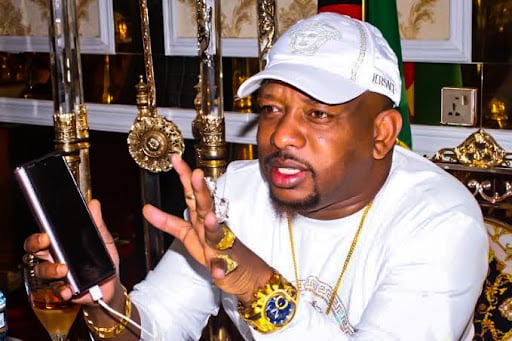

Former Nairobi Governor Mike Mbuvi Sonko has been meeting with his legal team after the East African Court of Justice handed him partial victory in his quest to fight the Supreme Court verdict that upheld his victory.
Led by Lawyer John Khaminwa, the team met the governor on Monday, outlining the way forward.
“The East African Court of Justice is a regional court whose work is to ensure adherence to the law in the interpretation, application, and compliance with the EAC Treaty,” Khaminwa to the Star when asked about the meeting.
He exuded confidence that the EACJ would hand the former governor justice in his quest to challenge some aspects of his impeachment that he said violated the treaty binding to get their member states.
EACJ on Friday ruled that it has jurisdiction to hear and determine some aspects of an application filed by Former Nairobi Governor Mike Mbuvi Sonko challenging a decision barring him from holding public office in Kenya.
Sonko had moved to EACJ to challenge the Supreme Court verdict on his impeachment as Nairobi Governor saying it breached the East African Community Treaty.
EACJ in their ruling stated that Sonko had demonstrated that the Supreme Court could have failed to adhere to its own procedural rules.
The Judges ruled that in the event the claims are proved, it would be in violation of Article 25 of the Kenyan Constitution and Articles 6 and 7 of the Treaty.
“The applicant has established that there is a cause of action that depicts substance and reality. His allegations of procedural irregularities and denial of a fair trial are substantiated by evidence, including admissions by the SCOK of its procedural errors,” stated the regional Court, presided over by Justice Yahane B Masara.
Other Judges who made the ruling are Dr Charles Nyawello, Richard Muhumuza, Richard Wabwire and Dr. Leonard Gacuko
Sonko was impeached as the Governor of Nairobi on November 26, 2020, and he moved to the High Court to challenge his ouster.
However, his petitions were dismissed by the Supreme Court.
The former Governor would later be barred from contesting in the 2022 polls after declaring his bid for the Mombasa Gubernatorial seat.
The move forced Sonko to file a case at the regional court.
Sonko in his petition argued that the proceedings at the Supreme Court of Kenya were conducted in a manner that violates the rule of law, natural justice and the principles of transparency and accountability.
He added that the Judicial arm of the government abdicated its mandate and duties as an independent organ by disregarding the purpose of the Constitution and principles of the treaty setting up the EACJ.
Kenya's Attorney General however filed a preliminary objection to the decision by Sonko to sue at the East African Court of Justice citing lack of jurisdiction.
The AG noted that the dispute in question is strictly domestic and does not involve the interpretation and application of the Treaty.
The AG argued that EACJ has no mandate to review and or overturn judgements of national courts of member states including the Supreme Court of Kenya.
Kenya's AG averred that the EACJ is limited to the interpretation and application of the Treaty, a mandate that does not allow it to oversight, review and reverse judicial decisions by partners' municipal courts.
In a rejoinder, the former governor reiterated that EACJ is the right forum for determining whether the Supreme Court of Kenya's actions align with its obligation under the treaty.
In their ruling, the judges that Sonko had demonstrated that he would suffer irreparable harm if the orders sought were not granted.
“The Supreme Court decision to bar him for life from participating in political activities has profound and far-reaching consequences,” they stated
“Such harm cannot be adequately remedied by damages or any other form of post-facto chief," they ruled.
The judges agreed that the Sonko had demonstrated that the Supreme Court of Kenya could have failed to adhere to its own procedural rules.
This, they said, if proved, would be in violation of Article 25 of the Constitution of Kenya and Articles 6 and 7 of the Treaty
They at the same time greed that they have no jurisdiction
to conduct appellate merit reviews of court decisions of partner states.
They added that the Supreme Court of Kenya and other apex
courts of other states remain ultimate judicial authorities in their respective
jurisdiction.
But the EACJ ruled that the same courts remain subject to
obligations that arise under the international treaty law.
"The International commitment undertaken by the partner
states under the treaty do not conflict with nor are they subordinate to
domestic constitutional principles," the judges ruled.
They added that the treaty does not undermine the
constitutional supremacy of the Supreme Court of Kenya but complements it by
providing the framework for addressing the matters of treaty interpretation as
agreed by the partner states.
“The court affirms
that while it lacks jurisdiction to conduct appellate merit review of the
Supreme Court of Kenya's decision, it retains jurisdiction to address
allegations of contravention of Articles 6 and 7 of the Treaty. The preliminary
objection is therefore upheld in part and dismissed in part,” the judges concluded.


